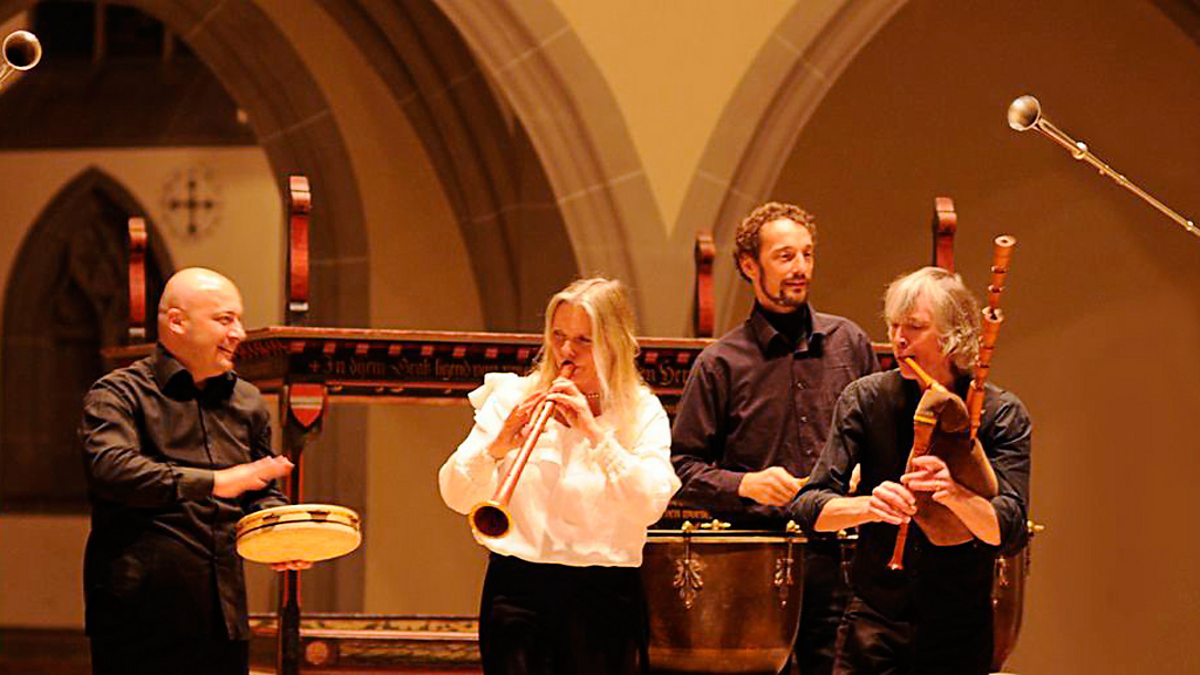Saturday
Lucie Skeaping considers the importance of wind music in the middle ages, through the work of one of today's award winning period ensembles.
The ensemble of shawms, bombards and trumpet or sackbut (trombone), known as the alta capella, was one of the most striking and influential ensembles of the middle ages. It was the ensemble most often heard in mediaeval cities, and one of the first ensembles to be placed on the civic payroll. The alta capella was the nearest that the middle ages had to our symphony orchestra.
Lucie Skeaping reflects on the work and music of the alta capella, focusing on one of today's foremost ensembles in this field - Les haulz et les bas.
Sunday
Catherine Bott explores the diverse music associated with the Medieval texts of the Carmina Burana. She talks about the difficulty of turning the original manuscript into music and the variety of interpretations that have ensued. Although commonly associated with drinking and bawdiness the Carmina Burana also contains religious texts. Marcel Peres's extensive research into these has resulted in some deeply emotive music that is not to be missed.
Lucie Skeaping considers the importance of wind music in the middle ages, through the work of one of today's award winning period ensembles.
The ensemble of shawms, bombards and trumpet or sackbut (trombone), known as the alta capella, was one of the most striking and influential ensembles of the middle ages. It was the ensemble most often heard in mediaeval cities, and one of the first ensembles to be placed on the civic payroll. The alta capella was the nearest that the middle ages had to our symphony orchestra.
Lucie Skeaping reflects on the work and music of the alta capella, focusing on one of today's foremost ensembles in this field - Les haulz et les bas.
Sunday
Catherine Bott explores the diverse music associated with the Medieval texts of the Carmina Burana. She talks about the difficulty of turning the original manuscript into music and the variety of interpretations that have ensued. Although commonly associated with drinking and bawdiness the Carmina Burana also contains religious texts. Marcel Peres's extensive research into these has resulted in some deeply emotive music that is not to be missed.


Comment